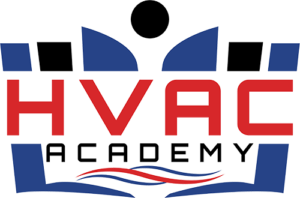In the dynamic field of Heating, Ventilation, and Air Conditioning (HVAC), specialization plays a pivotal role in shaping the career paths of technicians. HVAC systems vary widely in complexity and application, from residential heating and cooling units to sophisticated commercial systems and specialized equipment. Understanding and mastering these diverse areas requires targeted training and expertise. Here’s a comprehensive look at some common specializations within HVAC training programs and their significance in the industry.
Residential HVAC Systems
One of the foundational specializations in HVAC training programs is residential HVAC systems. Technicians focusing on residential HVAC are trained to install, repair, and maintain heating and cooling systems typically found in homes and small buildings. This specialization covers a range of equipment types, including furnaces, air conditioners, heat pumps, and ductless mini-split systems. Students learn about airflow principles, refrigeration cycles, electrical components, and troubleshooting techniques specific to residential settings.
Commercial HVAC Systems
Commercial HVAC systems present unique challenges due to their size, complexity, and diverse applications across various industries. Training programs specializing in commercial HVAC equip technicians with the knowledge and skills necessary to work on larger-scale systems found in office buildings, schools, hospitals, and retail establishments. Topics covered include rooftop units, chillers, boilers, ventilation systems, energy management, and compliance with building codes and regulations. Technicians also learn about advanced controls and automation used to optimize energy efficiency and indoor air quality in commercial spaces.
Refrigeration Technology
Refrigeration technology is a specialized field within HVAC that focuses on systems designed to cool and preserve perishable goods, such as food, pharmaceuticals, and industrial materials. Training in refrigeration technology covers principles of thermodynamics, refrigerant handling, compressor operation, and the design and installation of refrigeration systems. Technicians specializing in refrigeration often work in supermarkets, warehouses, cold storage facilities, and industrial plants where precise temperature control is critical.
Green HVAC Technology
With growing awareness of environmental sustainability, green HVAC technology has emerged as a specialized area of focus within training programs. Technicians in this field learn about energy-efficient HVAC systems, renewable energy sources, green building practices, and environmentally friendly refrigerants. Training emphasizes techniques for reducing carbon footprints, improving system efficiency, and complying with green building certifications such as LEED (Leadership in Energy and Environmental Design). Green HVAC technicians play a crucial role in helping businesses and homeowners achieve energy savings while minimizing environmental impact.
Industrial HVAC Systems
Industrial HVAC systems serve large-scale facilities such as manufacturing plants, warehouses, and chemical processing plants. Training programs specializing in industrial HVAC prepare technicians to work with high-capacity equipment, specialized controls, and hazardous environments. Topics include industrial ventilation, exhaust systems, process cooling, and safety protocols specific to industrial settings. Technicians must understand the unique operational demands and safety considerations associated with industrial HVAC systems to ensure reliable performance and compliance with industry standards.
Specializations in HVAC training programs cater to the diverse needs of the industry, offering technicians the opportunity to develop expertise in specific areas of HVAC technology and application. Whether focusing on residential comfort systems, complex commercial installations, refrigeration technology, green HVAC solutions, or industrial environments, specialized training enhances technicians’ skills, career prospects, and ability to meet the distinct challenges of their chosen field. By choosing a specialization aligned with their interests and career goals, HVAC technicians can build rewarding careers while making significant contributions to the comfort, efficiency, and sustainability of buildings and facilities worldwide.
Please register for our HVAC Technician Training Program for a brighter future ahead. Contact us.






Leave A Comment